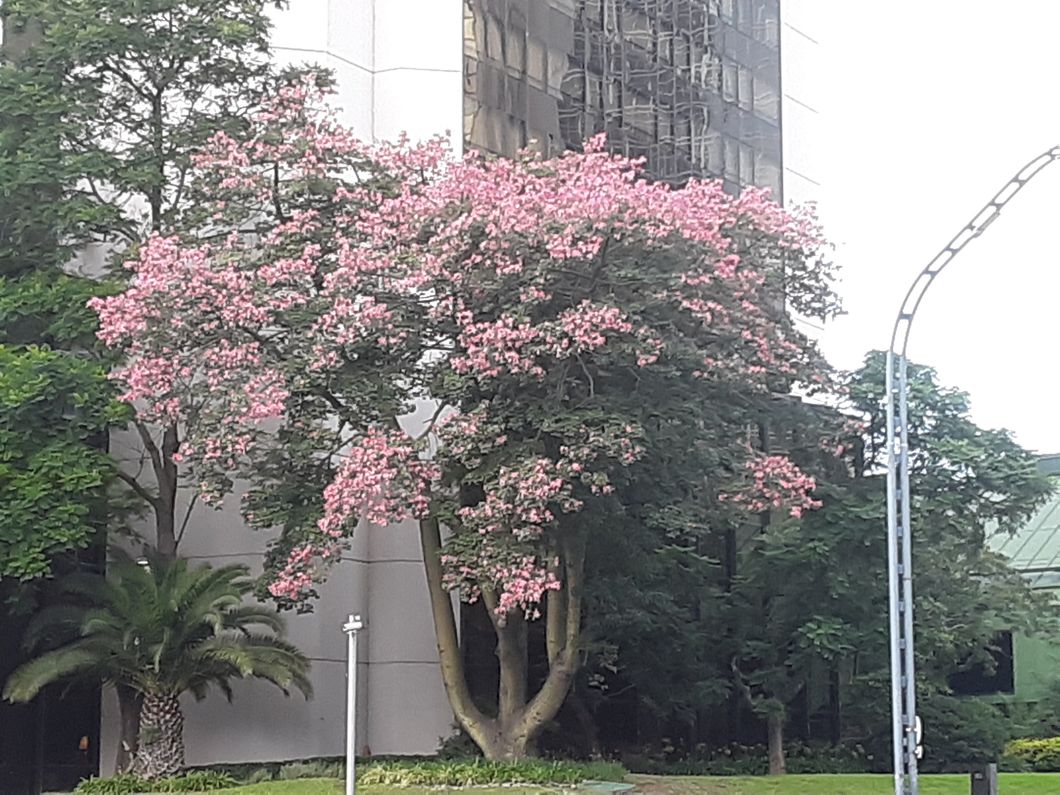At the beginning of February 2019, I took an overnight flight from NYC to Buenos Aires, and the change in continents was accompanied by a drastic change in weather. I went from the dead midwinter of the northeastern U.S. to the height of summer in southern South America. I was perfectly aware beforehand that this would happen, but, of course, anticipation is different from actual experience. (In fact, I had a cold for a little bit a week after arriving, and I suppose the change in climate had to do with it.) I took the photo above on Sunday the 24th by Plaza San Martín (reasonably near the Casa Rosada), and I've recently come to see my adjustment to the change in the weather as a pretty good departure point for broader reflection on adjustment to a new place.
Buenos Aires is said to be a particularly vibrant city, and quite similar to NYC. Like NYC, it has a subway system, many excellent restaurants, lots of great music and theatre, and a fascinating mix of cultures. From my perspective, as someone coming from a university in NYC, Buenos Aires seems like a riff on the former, a distorted reflection. Its subway system (at least the line I take to and from class compared to the one I take to get from the Bronx into Manhattan and back) is a lot cleaner and prettier, and the trains are narrower. Like NYC, it has a lot of neighborhoods with distinct personalities, but, unlike NYC, with its official division into a few boroughs, Buenos Aires is officially divided into its many neighborhoods. It has a good amount of visible marks of urban poverty, like NYC, and, unlike NYC, it (generally) lacks skyscrapers. Instead, it has many beautiful old buildings built along French models, actual palaces in which the "oligarchs" (to use one of Eva Perón's favorite words) lived during the country's Belle Epoque. The city has a great amount of beautiful historical monuments, and this feature, in particular, reminds me not so much of NYC but of my hometown (Quincy, MA), where great effort is dedicated to commemorating the memory of John and John Quincy Adams.
The entire country, too, seems to me to be distorted mirror image of the U.S. In Argentina you have a highly polarized population, a pronounced generation gap, a dichotomy between life in the city (in this case Buenos Aires) and life in the country (in the case of Argentina, everywhere but Buenos Aires), and a democratic government inspired by Enlightenment ideals and founded by national heroes who broke away from colonial rule (at least by extension, since there was a good amount of infighting after the initial revolution until the constitution was established.) Taking all this into account, it's very easy for me, in my attempt to wrap my head around the change in season, country, and continent, to settle for a caricature of Buenos Aires as a strange toy version of NYC, as a "Hispanified" fairyland version of the U.S. This is, of course, superficial nonsense and the stuff of prejudice. I'm in probably a bit of a relatively good position because I speak Spanish pretty well for someone who had never before traveled to a Spanish-speaking country (not counting, for reasons of simplicity (?) Puerto Rico) and I had read a good deal about Argentine history and culture before coming here. I thus am conscious of the danger of these kinds of superficial judgments, which just end up ruining opportunities for learning and for getting to know the truth of the matter. As a respectful observer and participant, then, I must continue to learn the skills of reaching conclusions without clinging to cardboard versions of them.
One more thing about viewing Argentina as a mirror version of the U.S.; beyond recognizing the dangers inherent in that viewpoint, there's another level to my thoughts. I once heard someone speak of the U.S. and Argentina as disparate twins, and this is pretty potent imagery for me because I happen to be an identical twin. Thus the presence of doubles in literature fascinates me, and I don't think it's entirely coincidental that I both have that fascination and chose specifically to study here, because doppelgangers and the like are a very important feature of the works of Jorge Luis Borges (1899-1986), the Argentine literary genius whom I basically love with a burning passion. My time here is something that I've pictured as a literary pilgrimage in homage to Borges and other Argentine authors whom I love.
It's consoling, compelling, and complicating to realize that viewing my time in Argentina as a sojourn in the embrace of a misplaced twin, both totally alike and totally different, is a double-edged sword: both indicative of a prejudice I must rid myself of in the name of decency, and an indispensable conceit which I should hold high as the banner of my motivation in getting the most out of my time here. This (un)resolved contradiction, so very much along the lines of great literature and, above all, to my mind, Argentine literature, is something I am very glad to find here, at the very least in the name of loving a place as something much more than a caricature but perhaps not totally lacking in that quality of caricature that all stunning things probably possess, being, as it was, too far beyond our comprehension to escape from our desperate focus.

















